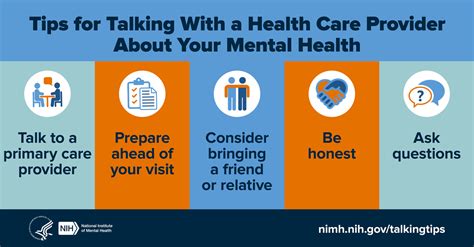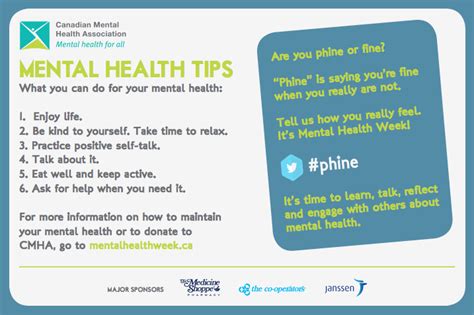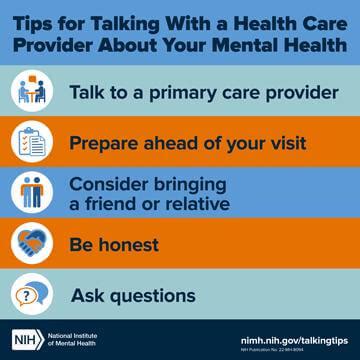Anxiety and depression are two of the most common mental health conditions, affecting millions worldwide. Finding the right medication can be crucial for managing symptoms and improving quality of life. This article provides an overview of the best medications for anxiety and depression, focusing on expert-recommended treatments. We will explore various options, including SSRIs, SNRIs, benzodiazepines, and atypical antidepressants, each with its unique benefits and considerations. Additionally, we’ll discuss how combining medication with therapy can enhance treatment effectiveness and highlight potential side effects to consider. Whether you’re seeking short-term relief or long-term management strategies, this guide aims to offer valuable insights into making informed choices for mental health relief.
Embark on a detailed exploration of this topic with nozaviral.com
1. Overview of Anxiety and Depression: Understanding the Conditions
Anxiety and depression are widespread mental health disorders that significantly affect daily functioning and overall well-being. Anxiety disorders are characterized by excessive worry, fear, and nervousness, often leading to physical symptoms such as increased heart rate, sweating, and trembling. Common types include generalized anxiety disorder (GAD), panic disorder, and social anxiety disorder. Depression, in contrast, is marked by persistent feelings of sadness, hopelessness, and a lack of interest or pleasure in daily activities. It can result in symptoms such as fatigue, changes in appetite or sleep patterns, and difficulty concentrating. These conditions often coexist, creating a complex challenge for individuals and healthcare providers. Recognizing the unique features and symptoms of each condition is essential for selecting appropriate treatments. Anxiety and depression can stem from a combination of genetic, environmental, and psychological factors. Early diagnosis and a comprehensive treatment approach, which may include medication, therapy, and lifestyle changes, are crucial for managing these conditions and improving the quality of life for those affected.

2. Criteria for Selecting the Best Medications for Anxiety and Depression
Selecting the most appropriate medication for anxiety and depression requires a thorough assessment of multiple factors, personalized to each individual’s unique circumstances. The initial consideration is the specific symptoms exhibited by the patient. Certain medications may demonstrate greater efficacy in addressing particular symptoms, such as panic attacks or persistent depressive episodes. Furthermore, the presence of coexisting conditions, such as substance use disorders or chronic illnesses, can significantly impact the selection of medication.
An essential factor in treatment planning is the individual’s past experience with medications. Previous positive responses to specific drugs can inform current treatment choices. Conversely, any past adverse reactions must be carefully considered to prevent recurrence. Furthermore, side effect profiles are crucial, as medications can induce drowsiness, weight gain, or other effects that may negatively impact the patient’s well-being and treatment adherence.
Finally, the patient’s individual circumstances, including their age, lifestyle, and potential drug interactions, must be taken into account. A collaborative approach involving the patient, their family, and healthcare professionals is crucial in choosing the most effective medication. Regular monitoring and follow-up appointments are vital to evaluate the treatment’s effectiveness and make any necessary modifications, ensuring the best possible management of anxiety and depression over the long term.

3. Top SSRIs (Selective Serotonin Reuptake Inhibitors) for Anxiety and Depression
Selective Serotonin Reuptake Inhibitors (SSRIs) are frequently the initial treatment choice for anxiety and depression because of their efficacy and generally manageable side effects. SSRIs achieve their therapeutic effect by raising serotonin levels in the brain, a neurotransmitter crucial for mood regulation. Popularly prescribed SSRIs include Sertraline (Zoloft), Fluoxetine (Prozac), Escitalopram (Lexapro), Paroxetine (Paxil), and Citalopram (Celexa). Each of these medications has undergone thorough research and demonstrated effectiveness in mitigating symptoms of both anxiety and depression.
Sertraline is a versatile medication often prescribed for treating various anxiety disorders and depression. Fluoxetine, with its extended half-life, helps minimize withdrawal symptoms upon discontinuation. Escitalopram, known for its low side effect profile, is an appropriate choice for patients sensitive to medications. Paroxetine is effective but may lead to weight gain and sedation, factors to consider for long-term treatment. Citalopram offers a balance of efficacy and tolerability, but requires monitoring at higher doses due to potential cardiac effects.
Selecting the appropriate SSRI requires careful consideration of the individual patient’s unique needs and medical background. Ongoing monitoring and adjustments are essential to ensure optimal outcomes.

4. Leading SNRIs (Serotonin-Norepinephrine Reuptake Inhibitors) for Dual Treatment
Serotonin-Norepinephrine Reuptake Inhibitors (SNRIs) represent another class of medications frequently employed in the treatment of both anxiety and depression. Unlike Selective Serotonin Reuptake Inhibitors (SSRIs), which primarily elevate serotonin levels, SNRIs enhance the levels of both serotonin and norepinephrine in the brain, potentially offering a wider spectrum of symptom alleviation. Prominent SNRIs encompass Venlafaxine (Effexor XR), Duloxetine (Cymbalta), Desvenlafaxine (Pristiq), and Levomilnacipran (Fetzima).
Venlafaxine is widely prescribed for its efficacy in treating generalized anxiety disorder, social anxiety disorder, and major depressive disorder. It is particularly effective in patients who may not respond to SSRIs. Duloxetine is favored for its dual action in alleviating both emotional symptoms of depression and physical symptoms, such as pain, which can often accompany depression. Desvenlafaxine is similar to Venlafaxine but offers a simpler dosing schedule and a reduced risk of certain side effects. Levomilnacipran is a newer SNRI, which may be more effective in patients with severe depression and is associated with fewer sexual side effects.
The selection of an SNRI is tailored to each patient’s unique symptoms, potential side effects, and individual needs. Optimal therapeutic outcomes often necessitate careful titration and monitoring.
5. Benzodiazepines: Short-Term Relief for Anxiety Symptoms
Benzodiazepines are a group of drugs that quickly alleviate intense anxiety symptoms, making them especially valuable for short-term treatment. They achieve this effect by boosting the activity of gamma-aminobutyric acid (GABA), a neurotransmitter that induces relaxation and calms the firing of neurons in the brain. Some commonly prescribed benzodiazepines include Alprazolam (Xanax), Lorazepam (Ativan), Clonazepam (Klonopin), and Diazepam (Valium).
Alprazolam, with its rapid onset of action, is frequently prescribed for panic disorder and acute anxiety episodes. Lorazepam, on the other hand, offers an intermediate duration of action, making it suitable for managing anxiety symptoms throughout the day without the need for frequent administration. Clonazepam, characterized by its longer half-life, provides sustained anxiety control over extended periods, minimizing fluctuations in medication levels. Diazepam, known for its prolonged effects, is commonly used for both anxiety management and muscle relaxation.
While benzodiazepines are effective in the short term, they are not recommended for long-term use due to the risks of dependence, tolerance, and potential withdrawal symptoms. These medications are typically prescribed alongside other treatments, such as SSRIs or therapy, for comprehensive anxiety management.
6. Atypical Antidepressants: Alternative Options for Treatment-Resistant Cases
Atypical antidepressants provide an alternative treatment pathway for individuals who fail to respond effectively to conventional SSRIs or SNRIs, or who encounter unpleasant side effects from these medications. These medications act on different neurotransmitters within the brain, potentially proving beneficial for treating resistant cases of anxiety and depression. Frequently prescribed atypical antidepressants include Bupropion (Wellbutrin), Mirtazapine (Remeron), Trazodone (Desyrel), and Vilazodone (Viibryd).
Bupropion is unique in that it primarily affects dopamine and norepinephrine levels, rather than serotonin. It is often used for patients who experience fatigue and low energy as primary symptoms, and it has the added benefit of a lower risk of sexual side effects. Mirtazapine is effective for both depression and anxiety, particularly in patients with insomnia, as it has sedative properties. Trazodone is often prescribed for its calming effects, especially for patients with anxiety-related sleep disturbances. Vilazodone combines properties of SSRIs and serotonin receptor agonists, offering a novel mechanism that can be effective for some individuals.
Atypical antidepressants offer flexible treatment options that are tailored to the unique needs of each patient, particularly in cases that are complex or have not responded to traditional treatments.
7. The Role of Therapy in Conjunction with Medication for Optimal Results
For optimal treatment of anxiety and depression, combining therapy with medication is often crucial. While medications like SSRIs, SNRIs, and atypical antidepressants effectively target chemical imbalances and reduce symptoms, therapy focuses on the psychological and behavioral aspects. Cognitive-behavioral therapy (CBT) stands out in its effectiveness, empowering individuals to identify and alter negative thought patterns, and develop coping strategies. This equips patients with practical tools to manage stress and anxiety, complementing the effects of medication.
Therapy can play a vital role in enhancing medication adherence. By providing support and accountability, it helps patients address underlying issues that may contribute to their conditions and develop strategies for long-term management. Therapy also offers a safe space for patients to discuss medication side effects and make necessary adjustments. This combined approach creates a comprehensive treatment plan that addresses both the biological and psychological aspects of anxiety and depression, ultimately leading to improved outcomes and a higher quality of life.
8. Potential Side Effects and Considerations for Medication Management
Managing anxiety and depression medication requires careful consideration of potential side effects and factors influencing treatment effectiveness and patient well-being. While Selective Serotonin Reuptake Inhibitors (SSRIs) are generally well-tolerated, they can cause side effects such as nausea, insomnia, sexual dysfunction, and weight gain. Escitalopram and Sertraline, among the SSRIs, have a relatively favorable side effect profile, but ongoing monitoring remains crucial. Serotonin-Norepinephrine Reuptake Inhibitors (SNRIs) may lead to side effects like increased blood pressure, sweating, and dry mouth. Venlafaxine, specifically, demands close monitoring for blood pressure changes at higher doses.
Benzodiazepines are effective for short-term relief but carry risks of dependence, tolerance, and withdrawal symptoms with prolonged use. They may also cause drowsiness and impair cognitive function. Atypical antidepressants have varied side effects; for example, Bupropion can increase the risk of seizures in some individuals, while Mirtazapine may lead to significant weight gain and sedation.
When selecting and managing medications for anxiety and depression, it’s crucial to consider individual patient characteristics. These include factors like age, existing health conditions, and potential interactions with other medications. Regular follow-up visits with healthcare providers are essential for evaluating treatment effectiveness, monitoring for potential side effects, and making necessary adjustments to the medication regimen. This collaborative approach fosters a balanced treatment strategy that prioritizes both the effectiveness and safety of the medication, ultimately leading to optimal management of anxiety and depression.
In summary, finding the right medication for anxiety and depression involves a careful balance of effectiveness, side effects, and individual patient needs. SSRIs and SNRIs offer broad treatment options, while benzodiazepines provide short-term relief for acute symptoms. Atypical antidepressants serve as valuable alternatives for treatment-resistant cases. Combining medication with therapy enhances overall treatment outcomes, addressing both the biological and psychological aspects of these conditions. Ongoing communication with healthcare providers ensures optimal management through regular monitoring and adjustments. By understanding and navigating these options, individuals can achieve better mental health and improved quality of life.
nozaviral.com

